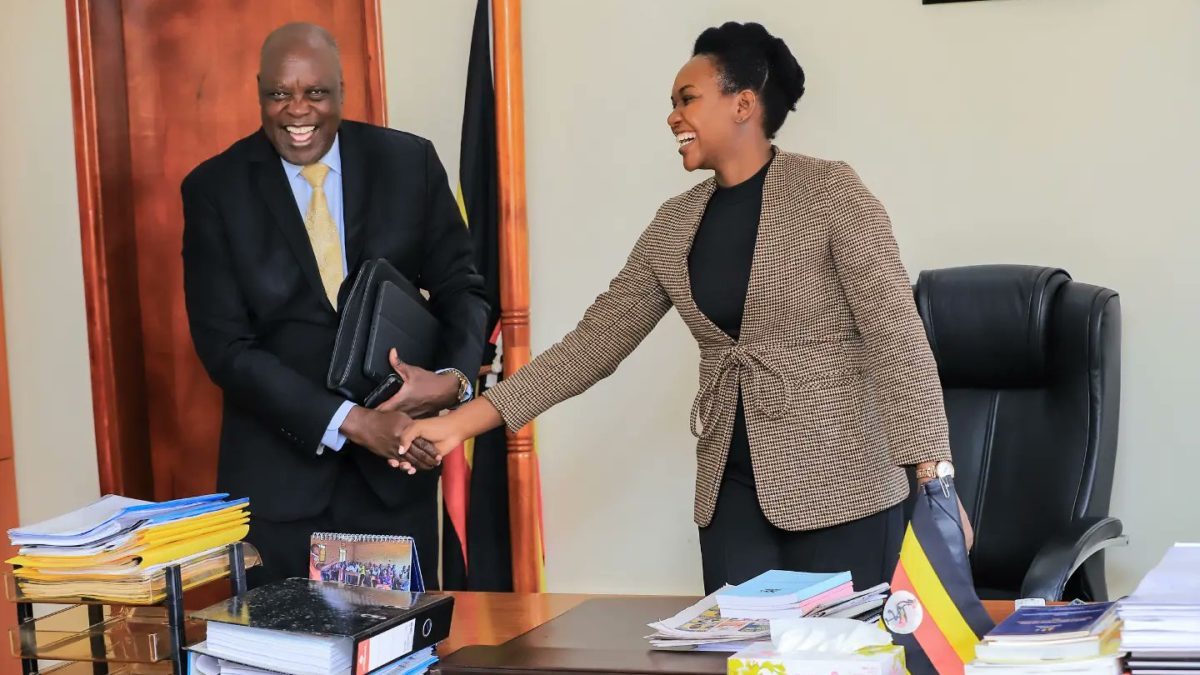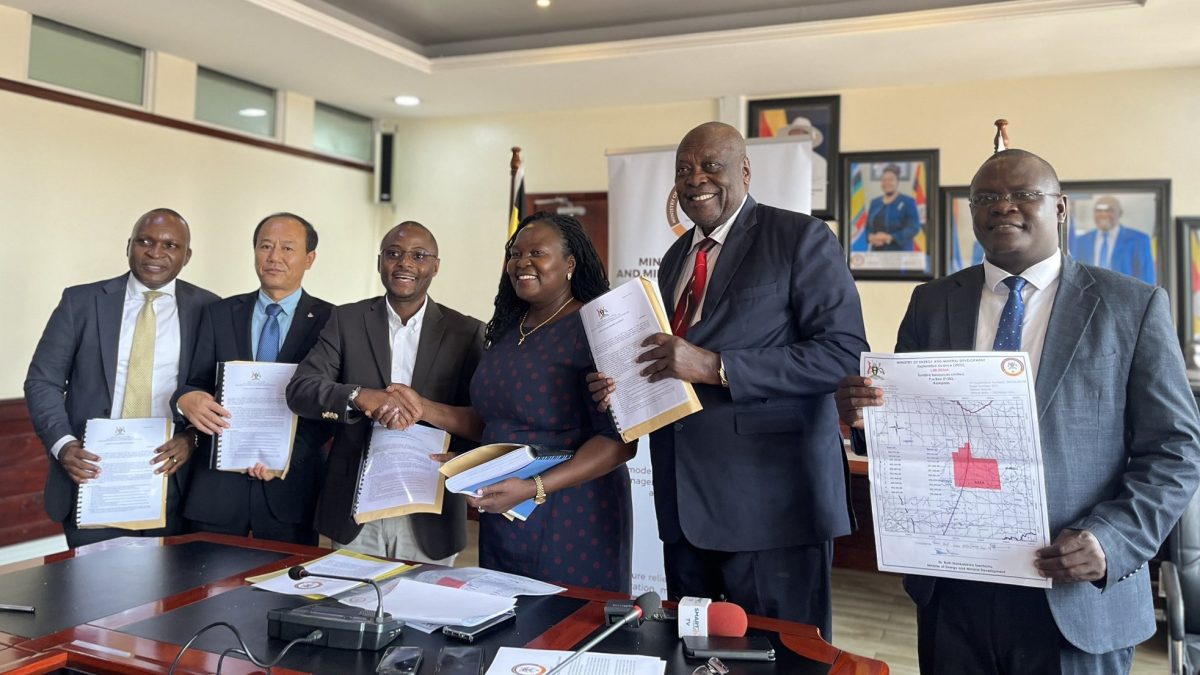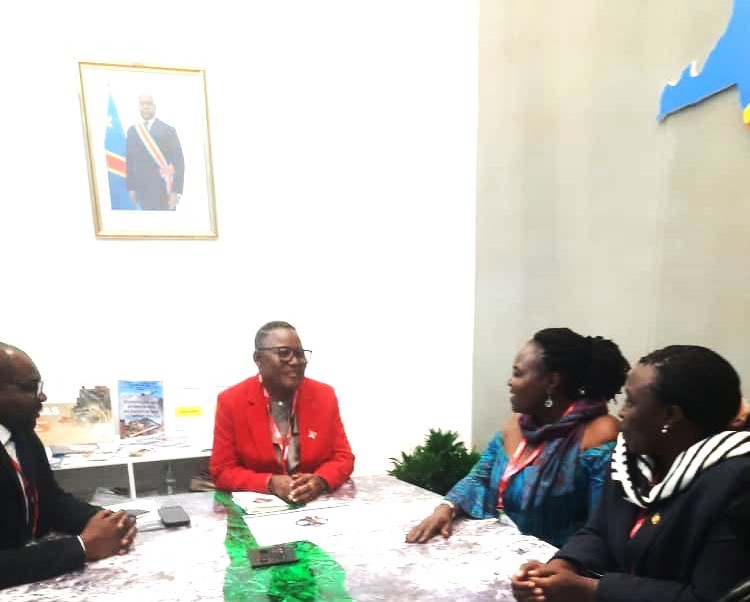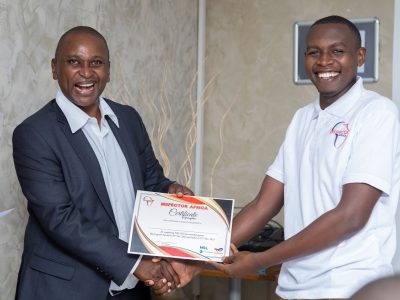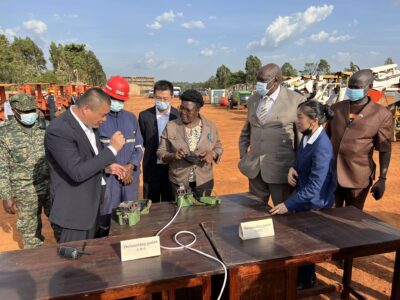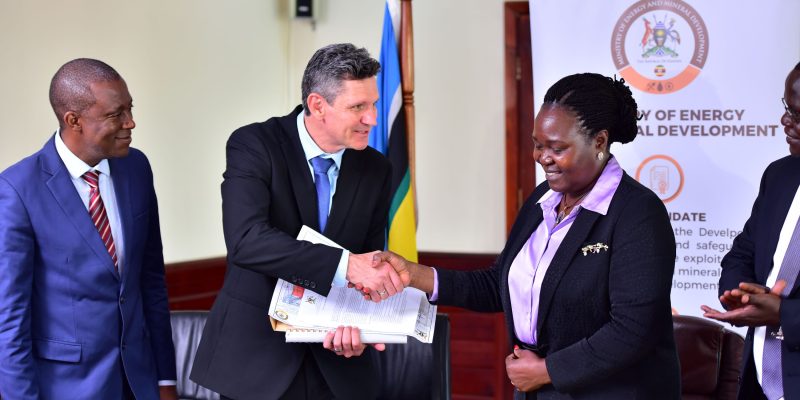
The Makuutu Rare Earths Project has been awarded the first large scale mining licence under the recently enacted Mining and Minerals Act of 2022.
The rare earths project found in the Busoga region in Eastern Uganda is owned by Rwenzori Rare Metals (RRM) – in which Australian public listed company, Ionic Rare Earths (IonicRE), owns 60% shares. IonicRE plans to increase its stake to 94% later this year.
“This license represents years of development work on the project since 2016 under RRM, which has carefully and diligently fulfilled its obligations under the Act and its regulations. The notice of this fulfilment was gazetted on January 9, 2024,” Ruth Nankabirwa, the Minister of Energy and Mineral Development, said this week.
The mining licence – LML00334 – is the first of six tenements expected to progress to a mining licence over the next decade.
Makuutu has a mineral resource estimate of 532 million tonnes of ionic adsorption clay (IAC) containing 340 thousand tonnes of rare earth oxides across all six of its licences, according to information from IonicRE.
The 21-year-long large scale mining licence represents the first step in developing one of the world’s largest and most advanced development-ready heavy rare earth element asset outside of China.
Rare-earth elements (REEs) are used in the components of many modern devices such as the screens of smartphones, computers, and flat panel televisions, motors of computer drives, batteries of hybrid and electric cars, and new generation light bulbs.
Over 90% of the global supply of these strategic elements come from China. Makuutu, therefore, provides Uganda a huge opportunity to be an early mover in the establishment of new alternative, secure, sustainable and traceable supply chains with partners across Europe, North America and Asia.
As the world introduces more clean energy technologies, the Makuutu project has the potential to deliver economic, social and impactful community development programs for the country.
Tim Harrison, IonicRE Managing Director, said: “The mining license enables discussions with potential strategic and supply chain partners to progress to the next stage to bring Makuutu and a new supply of magnet and heavy rare earths to market.”
Adding, “With this award, and discussions underway with potential partners, the project is aiming for Final Investment Decision (FID) later this year, and first product to customers in early 2026.”
The Makuutu Stage 1 feasibility study completed in March 2023 showed positive economics, including a requirement of $121 million capital investment to commence operations (these include starting mining and the construction of a processing plant). More than $20 million has been invested in the project to date by RRM and IonicRE.
Stage 1 of the project (once operational) has the potential to generate more than $600 million worth of taxes and royalties for Uganda over a 35-year life of mine; plus 546 direct jobs and more than 1,000 through contracts and services.
A demonstration plant worth $8 million is being constructed currently at Makuutu where the company will produce its value added mixed rare earths carbonate (MREC) product, according to the company.
“Progress continues to be made at Makuutu’s Demonstration Plant. It will be critical in de-risking the commercialisation of the project through the production of value added MREC for our partners to qualify and validate,” said Harrison.
Special conditions
The mining license has been long coming, with the operators initially applying for the same over two years ago. Apart from delays related to the proclamation of a new legal regime in the mining industry, the license issuance was also put on hold due to land compensation-related issues.
According to Nankabirwa, the latter has essentially been addressed.
“The ministry is pleased to note that the project has received broad support from the communities in which it operates – including from political and district leadership and the Busoga Kingdom – by securing land access agreements for over 96% of the licence area, which is over 44km2. This in itself is a significant achievement,” she said.
Mine development operations including construction activities will, however, only commence after full payment of compensation for the exclusive use of the affected land, according to a list of conditions the Minister read.
The mining licence or a share of it cannot be transferred before the full payment of compensation to project affected persons, or the transferee shall expressly take on the obligation to fully pay compensation for the exclusive use of the affected land, Nankabirwa further emphasized.
The mine development operations are expected to start within 12 months from the licencing date (listed as December 28, 2023).
The other conditions include granting the state an ownership interest at no cost, of up to a maximum of 15%, in the Makuutu mining licence.
RRM and IonicRE are also expected to carry out mining operations on a scale that delivers a minimum annual production of 5Mt ROM Feed, using a 500 ppm TREO-Ce2O3 cut off, then relaxed cut off to 200ppm TREO-Ce2O3.
Value addition (beneficiation) in-country is also expected at Makuutu, including processing and refining.
Other conditions relate to annual mineral rent payments, observance of environmental protection standards, adherence to local content obligations and the implementation of community development agreements.
RRM Country Manager Patience Singo, the CEO Warren Tregurtha and Deborah Namirimu the company’s Stakeholder Engagement and Communications Lead, were on hand to witness and receive the signed license at the Ministry head office, in Kampala.



